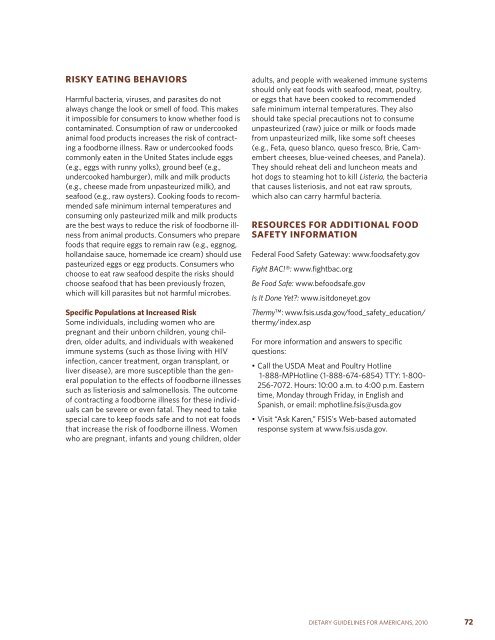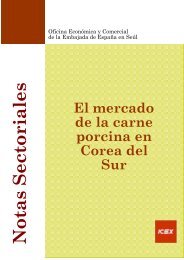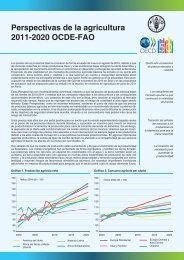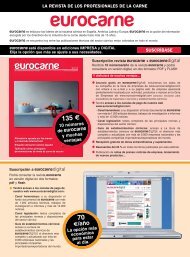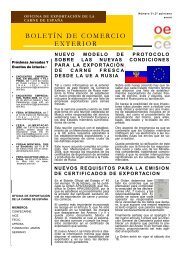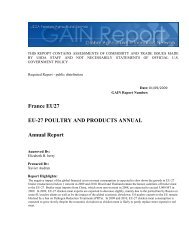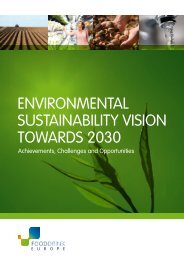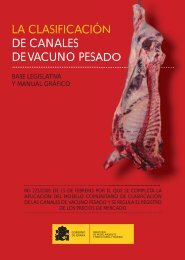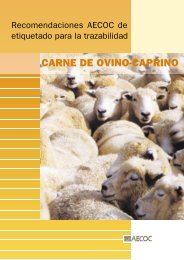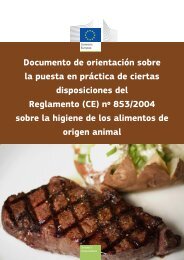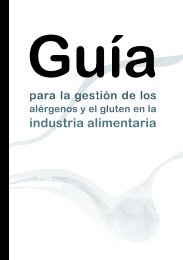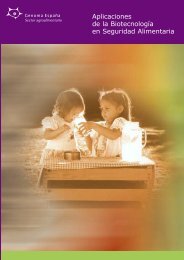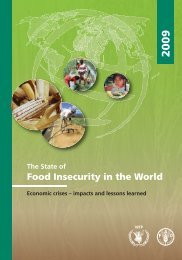Dietary Guidelines for Americans - SchoolNutritionAndFitness.com
Dietary Guidelines for Americans - SchoolNutritionAndFitness.com
Dietary Guidelines for Americans - SchoolNutritionAndFitness.com
- No tags were found...
You also want an ePaper? Increase the reach of your titles
YUMPU automatically turns print PDFs into web optimized ePapers that Google loves.
isky eating BehaviorsHarmful bacteria, viruses, and parasites do notalways change the look or smell of food. This makesit impossible <strong>for</strong> consumers to know whether food iscontaminated. Consumption of raw or undercookedanimal food products increases the risk of contractinga foodborne illness. Raw or undercooked foods<strong>com</strong>monly eaten in the United States include eggs(e.g., eggs with runny yolks), ground beef (e.g.,undercooked hamburger), milk and milk products(e.g., cheese made from unpasteurized milk), andseafood (e.g., raw oysters). Cooking foods to re<strong>com</strong>mendedsafe minimum internal temperatures andconsuming only pasteurized milk and milk productsare the best ways to reduce the risk of foodborne illnessfrom animal products. Consumers who preparefoods that require eggs to remain raw (e.g., eggnog,hollandaise sauce, homemade ice cream) should usepasteurized eggs or egg products. Consumers whochoose to eat raw seafood despite the risks shouldchoose seafood that has been previously frozen,which will kill parasites but not harmful microbes.specific Populations at increased riskSome individuals, including women who arepregnant and their unborn children, young children,older adults, and individuals with weakenedimmune systems (such as those living with HIVinfection, cancer treatment, organ transplant, orliver disease), are more susceptible than the generalpopulation to the effects of foodborne illnessessuch as listeriosis and salmonellosis. The out<strong>com</strong>eof contracting a foodborne illness <strong>for</strong> these individualscan be severe or even fatal. They need to takespecial care to keep foods safe and to not eat foodsthat increase the risk of foodborne illness. Womenwho are pregnant, infants and young children, olderadults, and people with weakened immune systemsshould only eat foods with seafood, meat, poultry,or eggs that have been cooked to re<strong>com</strong>mendedsafe minimum internal temperatures. They alsoshould take special precautions not to consumeunpasteurized (raw) juice or milk or foods madefrom unpasteurized milk, like some soft cheeses(e.g., Feta, queso blanco, queso fresco, Brie, Camembertcheeses, blue-veined cheeses, and Panela).They should reheat deli and luncheon meats andhot dogs to steaming hot to kill Listeria, the bacteriathat causes listeriosis, and not eat raw sprouts,which also can carry harmful bacteria.resources <strong>for</strong> additional foodsafety in<strong>for</strong>MationFederal Food Safety Gateway: www.foodsafety.govFight BAC!®: www.fightbac.orgBe Food Safe: www.befoodsafe.govIs It Done Yet?: www.isitdoneyet.govThermy: www.fsis.usda.gov/food_safety_education/thermy/index.aspFor more in<strong>for</strong>mation and answers to specificquestions:• Call the USDA Meat and Poultry Hotline1-888-MPHotline (1-888-674-6854) TTY: 1-800-256-7072. Hours: 10:00 a.m. to 4:00 p.m. Easterntime, Monday through Friday, in English andSpanish, or email: mphotline.fsis@usda.gov• Visit “Ask Karen,” FSIS’s Web-based automatedresponse system at www.fsis.usda.gov.DIETARY GUIDELINES FOR AMERICANS, 2010 72


